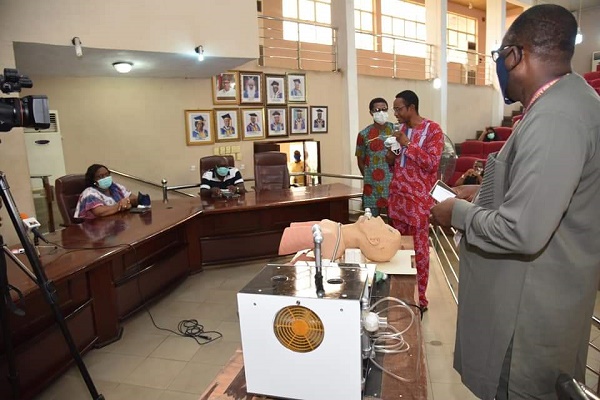An illustrative photo of university students.
BY DEBORAH OLUWABUNMI
I received with immense joy the order given by the president, Bola Ahmed Tinubu, which called for the suspension of arbitrary increment in charges recently announced by some federal government-owned universities. The order, though a step in the right direction, is only a temporary fix to the hydra-headed monster created by the poor funding of our universities.
It is not a lie that Nigerian public universities have been grossly underfunded by successive governments over the years. The issue of poor funding has greatly affected the quality of graduates produced yearly, the dearth of infrastructural facilities, and poor welfare for members of the academic community among others.
A few months ago, electricity was shut down at Ahmadu Bello University, Zaria, following the alleged failure of the university to pay an outstanding bill worth N900 million to the Kaduna Electricity Distribution Company.
Advertisement
While I greatly sympathize with the managers of the academic community, it is important to note that the failure of the government to meet up to its duties in the aspect of funding does not mean that our institutions have to be left at their mercy.
Of course, the removal of fuel subsidy which has continued to cause untold hardship for Nigerians has greatly affected the academic community. However, it is unacceptable that the only solution proposed by the managers of some of our institutions had to be a fee increment which in my opinion is the least innovative and laziest alternative way of generating funds.
In saner climes, institutions generate funds through endowment funds, sponsorships by philanthropists, corporate organisations, alumni associations and the like.
Advertisement
While Nigerian public universities still unarguably remain one of the cheapest universities in the world, it is imperative to state that universities require adequate funding to survive. Presently, the university system in Nigeria lacks the willpower to be financially autonomous.
Financial autonomy at this stage will mean the introduction of tuition which will be suicidal seeing as Nigerians are still battling with the removal of fuel subsidy. The introduction of the student loan fund, though may help to keep interested learners in school, will not provide permanent solutions nor address the issue of funding.
The government can help by implementing a public-private partnership scheme to manage our institutions. A bail-out fund to rescue some failing universities will also be appreciated.
Oluwabunmi is the executive director of Reform Education Nigeria. She writes from Abuja
Advertisement
Views expressed by contributors are strictly personal and not of TheCable.
Add a comment






